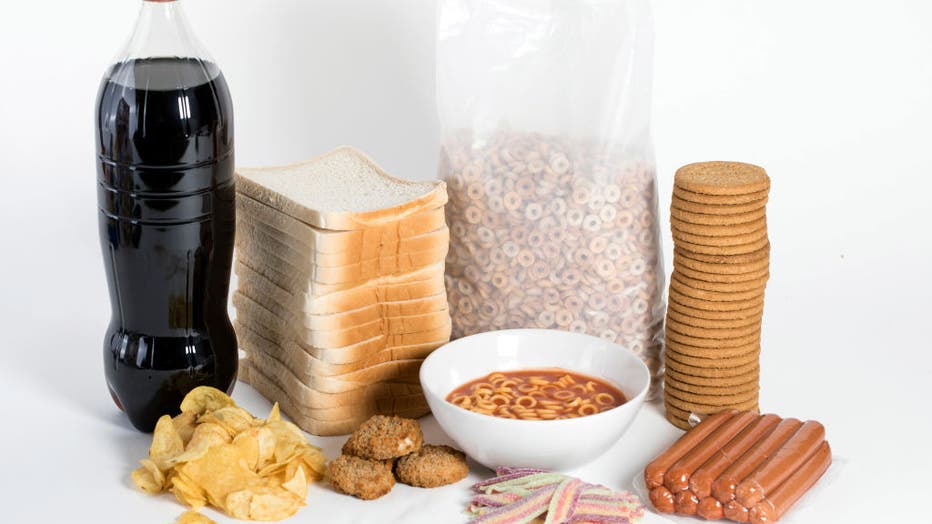What is 'ultra-processed food'? Most Americans don't know
How foods can impact your gut health
Saturday is "National Food is Medicine Day" and many Americans deal with a plethora of health issues. LiveNOW from FOX host Christy Matino spoke to Dr. Joan Salge Blake, a clinical assistant professor and dietetics internship director at Boston University's Sargent College of Health and Rehabilitation Sciences on this issue.
LOS ANGELES - Ultra-processed foods might be common on store shelves, but their definition remains unclear to many Americans.
According to a recent Consumer Trends survey, 35% of respondents said they had never heard the term "ultra-processed food," and an additional 32% admitted they weren’t sure what it meant. Only 28% felt confident they understood the term.
"Most Americans don’t know precisely which foods count as ultra-processed because researchers have only recently started looking at whether highly-processed foods can cause harm," Bonnie Liebman, MS, Director of Nutrition for the Center for Science in the Public Interest, told Health.com in 2023.
What is ultra-processed food?
Ultra-processed foods are typically described as "industrial formulations" that include ingredients like hydrogenated fats, modified starches, artificial colors, and stabilizers. They’re often hyper-palatable, cheap, and convenient—think sodas, frozen meals, packaged snacks, and fast food.
The health risks of ultra-processed foods
Research continues to shed light on the risks associated with ultra-processed diets. A study published in BMJ in 2022 found that individuals who consumed large amounts of ultra-processed foods had an increased risk of heart disease, colorectal cancer, and all-cause mortality.
Additionally, a study in Cell Metabolism highlighted that participants eating ultra-processed diets consumed an average of 500 more calories per day compared to those on unprocessed diets. They also gained weight faster.
Experts like Bonnie Taub-Dix, RDN, emphasize moderation: "Ultra-processed foods might be candy, soda, pastries, hot dogs, and other food we should be consuming less often—basically foods that contain a lot of sugar, salt, saturated fat, and preservatives," she told Health.

FILE - A photo illustration of 'Ultra Processed' foods.
What Americans think about regulation
While Americans might struggle to define ultra-processed foods, many are in favor of stricter oversight. According to the Consumer Trends survey:
- 64% of respondents believe the government has a responsibility to regulate ultra-processed foods.
- 71% of millennials agree, more than any other generation.
Similarly, 70% of respondents think these foods should carry special warning labels, akin to those on tobacco or alcohol products.
Grocery stores are also under scrutiny, with nearly half of survey participants saying stores have a responsibility to sell fewer ultra-processed items.
How to recognize and avoid ultra-processed foods
Nutritionists advise consumers to look beyond marketing claims and read labels carefully. Common red flags on ultra-processed food labels include:
- Hydrogenated oils
- High-fructose corn syrup
- Artificial flavors or colors
- Preservatives like sodium benzoate or potassium sorbate
As Liebman told Health, "A good rule of thumb is to fill half your plate with fresh fruits or vegetables, leave a quarter of your plate for healthy protein foods, and fill another quarter with whole grains."
Reducing consumption of ultra-processed foods doesn’t mean eliminating them altogether. Experts suggest aiming for balance and focusing on nutrient-dense whole foods whenever possible.

